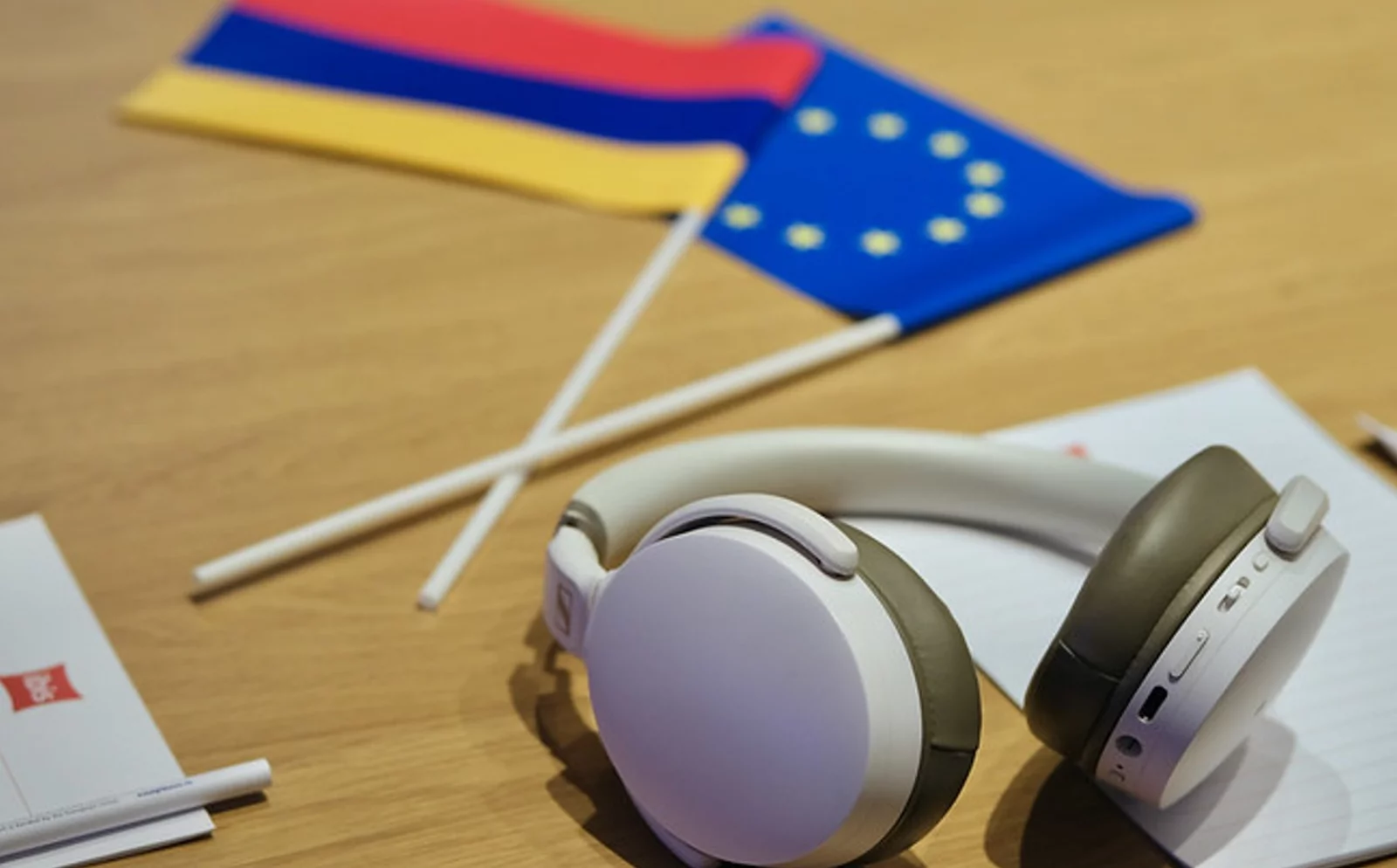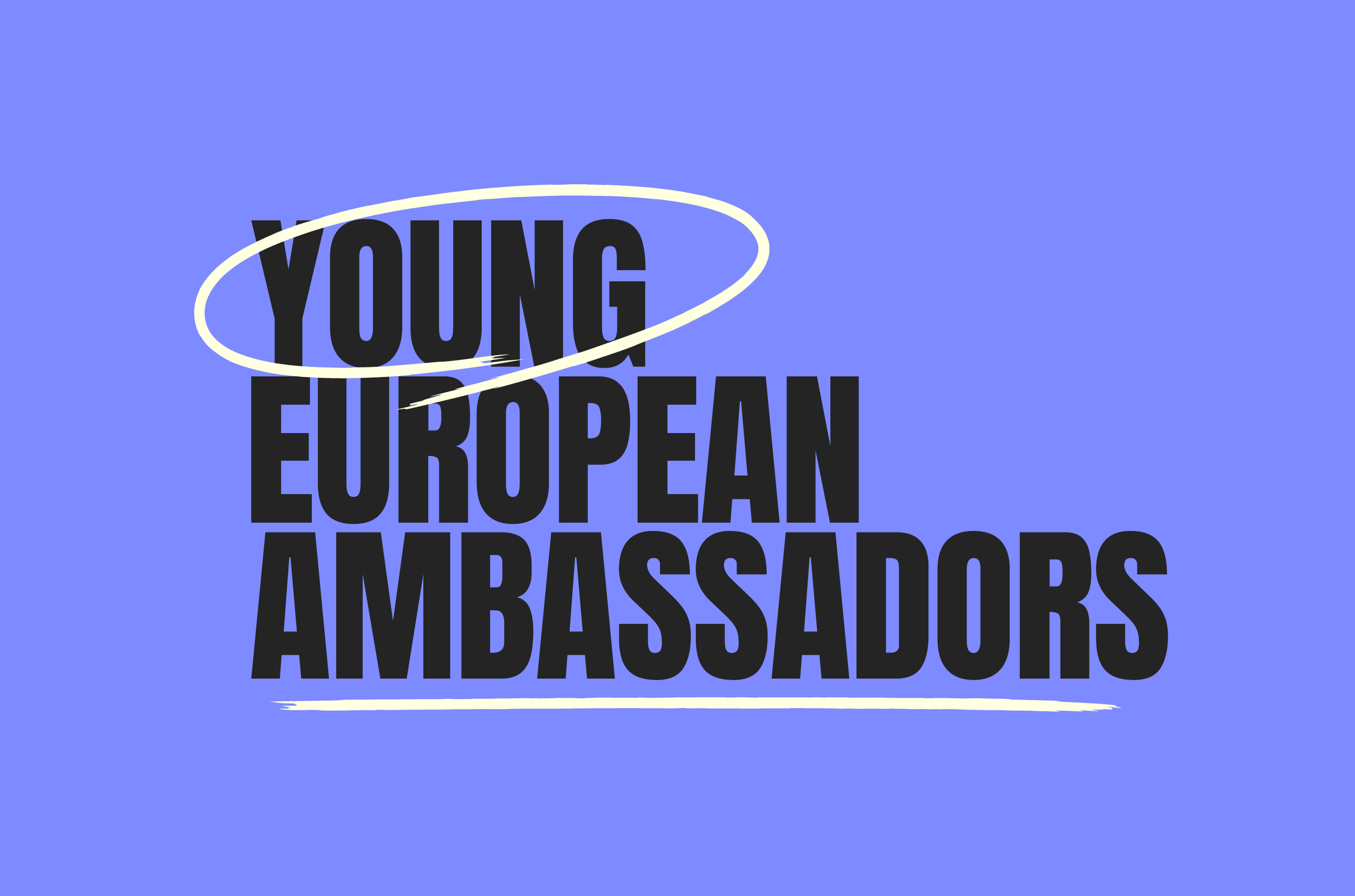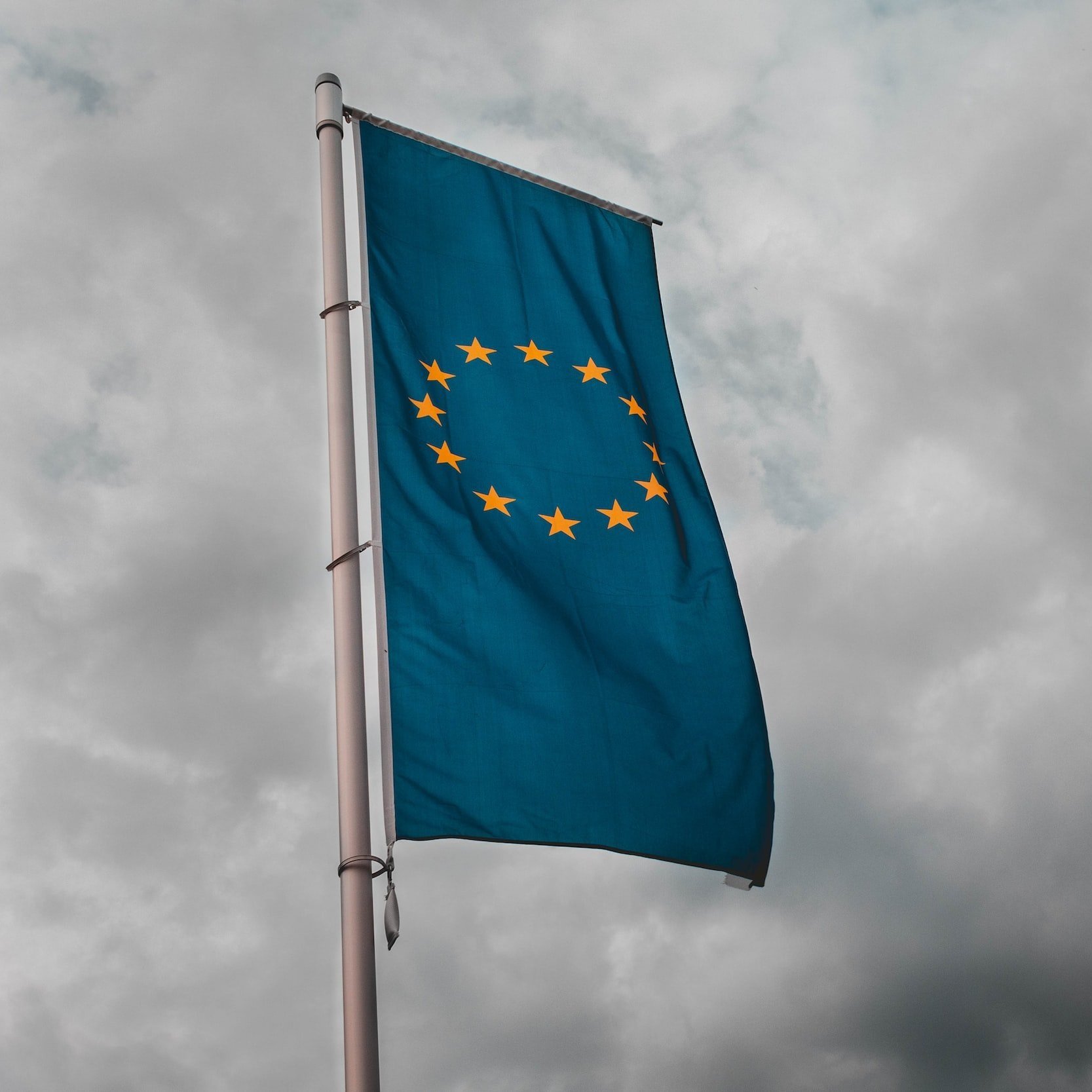Why be involved for the EU in Armenia?
Source : Young European Ambassadors
The Eastern Partnership is an essential part of the Neighbourhood Policy of the European Union. Created in 2009, it aims to strengthen the diplomatic, economic, and cultural relations between the EU and six countries: Belarus, Ukraine, Moldova, Georgia, Azerbaijan and of course Armenia. And to give a voice to the youth of each country, the Young European Ambassadors (YEA) were created in 2016.
Since almost a year now we have a partnership with the YEA, and today I wanted to give them a voice. Why someone from Armenia or Georgia would spend time to promote the EU?
I asked one of these Ambassadors, who’s now involved since September, about her opinion, her doubts, and her vision of the European Union, sometimes far from its neighbours.
Could you present yourself and your background?
Of course. My name is Anna Sahakyan, I am a student from Armenia, currently in my third year of studies at Yerevan State University, majoring in International Relations, Diplomacy. During my studies, I have gained a solid understanding of global politics, diplomacy, and conflict resolution, and I am passionate about understanding global issues and working towards solutions that promote peace, justice, and equality. I have had the opportunity to take part in several Erasmus Plus youth exchanges related to various topics.
Outside of my studies, I have also been actively involved in youth work for the past two years. I have been a volunteer in several local NGOs where I have helped to organize various events and initiatives as well as I have also served as a youth worker in several community outreach programs, where I have worked with young people from diverse backgrounds to promote positive social change. Through my experiences as a student and volunteer, I have developed strong skills in communication, leadership, and teamwork, which I believe will be valuable in any professional setting. I am excited about the opportunity to apply my skills and knowledge to make a positive impact in the world.
How could you define your responsibilities?
In terms of my responsibilities, I would say that my main focus has been on helping to empower young people and give them a voice. Whether that's through organizing events, providing mentorship, or advocating for youth issues, I am always looking for ways to make a positive impact. Moving forward, I am excited to continue building on these experiences and developing my skills in the field of International Relations and Diplomacy. I am particularly interested in exploring opportunities to work in international development and peacebuilding, where I can use my skills and passion to make a meaningful difference in the world.
I believe that one of the most rewarding challenges I might take on would be to assist organizations in the formulation of youth-friendly policies and processes for the purpose of expanding available opportunities for all young people. I am hopeful that we the future Young Ambassadors can create a sense of community and trust between people of different backgrounds, allow young people from all walks of life to connect and collaborate on a shared vision for a peaceful society, promote respect for human rights and speak out against violence in all its forms, help communities recover from various traumas and aid in the reintegration of young people who have left the military, improve the knowledge and abilities of their contemporaries as well as promote peace processes that include young people and people of all genders. The young people of today will be the leaders and customers of tomorrow so I am sure that our generation is the one that is able to solve all these problems through a diplomatic and peaceful way.
What are the main initiatives of the European Union to promote youth involvement in the building of the Eastern Partnership?
As we all know Eastern Partnership aims to deepen and strengthen the political association and economic integration between the EU and its Eastern neighbours so as to promote youth involvement in the building of the Eastern Partnership, the EU has launched several initiatives in a variety of areas, including but not limited to: Youth exchanges and mobility programs which allow young people from the EU and the Eastern Partnership countries to participate in them. These programs provide opportunities for young people to interact with each other, learn about different cultures, and develop a sense of shared values and goals. The EU has also established programs that aim to empower young people by providing them with leadership training, capacity-building, and mentoring support. The programs aim to develop the skills and competencies needed to become active and responsible citizens and leaders. The EU supports initiatives that aim to enhance youth participation in decision-making processes and promote youth dialogue. These initiatives provide a platform for young people to voice their opinions, concerns, and aspirations and engage in a constructive dialogue with policymakers and stakeholders. The EU provides funding and support for youth-led initiatives that aim to promote social cohesion, community development, and civic engagement. These initiatives range from grassroots community projects to national and regional campaigns.
In your opinion, what size is given to students and young citizens in the Partnership? Is it enough to face the future challenges (climate, human rights, democracy)
I reckon the size of the opportunities given to students and young citizens in the EaP varies depending on the specific program or initiative. Overall, the EaP aims to promote youth participation in policymaking and provide opportunities for personal and professional development, including education, training, and civic engagement. Furthermore, in some cases, young people in the EaP face significant barriers to participation, such as limited access to resources or political repression. In such cases, additional support and advocacy are necessary to ensure that young people are able to engage in meaningful ways.
Whether these opportunities are enough to face the future challenges of climate change, human rights, and democracy is a matter of debate. Some argue that more needs to be done in terms of funding, infrastructure, and support to ensure that young people in the EaP have access to quality education, training, and employment opportunities. Others believe that the political and economic context in the region poses significant challenges that cannot be addressed by education and training alone. To my mind, while education and training are important for building skills and knowledge, they alone cannot solve complex problems such as climate change or human rights abuses.
To effectively address these challenges, a multi-faceted approach is needed that includes education and training, policy reform, and community engagement. This requires sustained investment and commitment from governments, civil society organizations, and international partners to create an enabling environment for young people to contribute to positive change.
According to you, what could be improved in the Eastern Partnership to give more space to youth from the neighbour countries of the EU?
I can think of a few methods that may be worth considering. The Eastern Partnership could improve its outreach efforts to engage more young people in the program's activities. This could include establishing youth councils or advisory groups to ensure that young people have a voice in the decision-making process. Another efficient way could be to enhance more educational and training opportunities for young people which involves scholarships, vocational training programs, and exchanges with EU countries. The Eastern Partnership could support youth entrepreneurship by providing access to funding, mentorship, and resources to help young people start their own businesses as well as encourage more cross-border cooperation between youth organizations in the partner countries. Perhaps these approaches could be beneficial. In my opinion, it is crucial that more young people have access to information about its programs and opportunities through various online and social media channels. There's a chance that this will encourage young people to continue following the news and engaging in the programs.
Why are students or young professionals involving in the EU Neighbourhood Policy?
As someone who has been involved in it as well, there is the possibility of enriching your practical skills for youth activism to foster democracy building during these challenging times by exchanging your experience of promoting inclusion and diversity with your peers from the European Union, Western Balkans, Eastern Europe and Caucasus.
Participating in EU Neighbourhood Policy initiatives with upgraded knowledge, skills and practices will aim to make you highly prepared to launch your career in a dynamic and exciting community of international youth work. Certainly, this will give students the opportunities to network with policymakers, civil society leaders, and other professionals on issues affecting youth employment to come up with ideas and solutions to support all young people and empower, inspire and support my peers to become young professionals.
It is already a great opportunity, being able to reach out to young, committed people in different countries as EU Neighbourhood Policy initiatives often involve cultural exchanges, which provides students and young professionals with opportunities to learn about different cultures, languages, and traditions, broaden their perspectives and help them develop intercultural competencies. Young people are the movement’s driving force here and now and are societies’ strongest confidence for real and lasting change in their communities and beyond. We are in no doubt the key drivers of social change.
How do they manage to be part of the Young European Ambassadors program?
To answer your question how they manage to be a part of the Young European Ambassadors (YEA) program, students and young professionals typically need to meet certain eligibility criteria and go through an application process. As part of the YEA program, ambassadors are expected to organize and participate in various activities, such as events, debates, seminars, and social media campaigns. These activities are aimed at promoting EU values and fostering dialogue between young people from different countries and cultures. It's important to note that the application process and requirements may vary depending on the specific YEA program and country. Interested candidates should check the specific requirements and application procedures for the YEA program in their region.
To what extent this involvement allows them to gain a certain political importance in their countries?
The involvement in the EU Neighbourhood Policy can provide students or young professionals with valuable experience and skills that could potentially contribute to their political importance in their countries. Through participating in the EU Neighbourhood Policy, students or young professionals can gain a better understanding of regional and international politics, diplomacy, and cross-cultural communication. This could equip them with the knowledge and skills needed to participate in political discourse and decision-making processes in their countries.
Furthermore, involvement in the EU Neighbourhood Policy also provides opportunities for networking and building relationships with other professionals in the field. These connections could help young professionals gain visibility and recognition in their respective countries, and potentially lead to further opportunities for involvement in politics.
However, it is important to note that political importance is not solely dependent on involvement in the EU Neighbourhood Policy or any other international initiative. Factors such as personal ambition, leadership skills, and networking abilities also play a role in shaping one's political influence and impact.
Collected and edited by Pierre Jouin
Notre partenaire : Les Young European Ambassadors
Créés en 2016 pour promouvoir l’engagement des jeunes dans le cadre du Partenariat oriental de la politique européenne de voisinage, les Jeunes ambassadeurs européens organisent des actions et publient régulièrement sur leur blog pour promouvoir les relations entre l’Union européenne et ses États voisins.
Depuis 2021, notre partenariat nous permet de publier des articles et des créations de jeunes de toute l’Europe et de donner à notre revue une visibilité auprès de ces populations étudiantes à l’Est.
Du même auteur :
De l'importance de la sensibilisation des jeunes dans l'Union européenne
Vendredi 9 avril 2021




